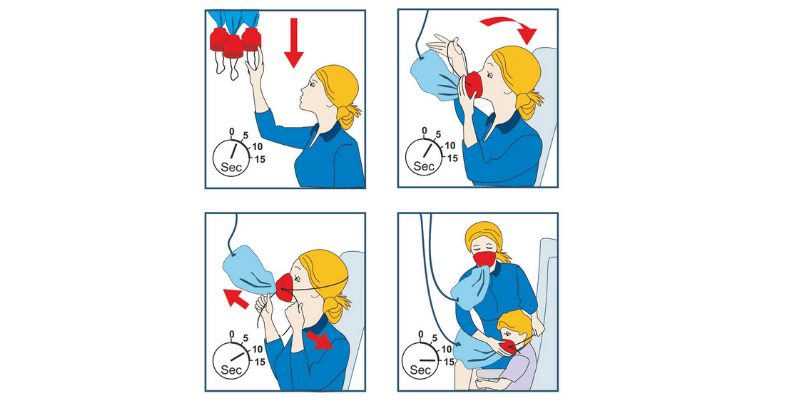Leading Schools in an Uncertain September

Over the last few weeks, The Education People have been running sessions to support middle leaders across Kent schools to explore how best to move forward in the uncertain world of our schools in September. These have been led by Secondary English Advisor, Zoe Enser, Maths Advisor, Andrew Woods and Christina Astin, the Science Advisor. Whilst we know that we need to aim towards a sense of normality, there remains a number of things which will inevitably be different. Anticipating what some of these things might be and how we can adapt to them, is especially important for middle leaders.
Christina, who comes from a science background with its own specific practicalities, explored what some of the practical issues facing middle leaders might be. From how to manage equipment to ensuring that communication is good between Departments and SLT, Christina assessed how it would be possible to approach some of these challenges as safely as possible, whilst still maintaining the unique elements which each subject need.
Curriculum considerations followed this, and here I explored the way we can draw on the advice of the likes of Christine Counsell and Mary Myatt to examine how to focus on the most important elements of our curriculum. I suggested thinking about our curriculum as a ‘Janus’ one is really significant now, as we reflect back on the learning which should have taken place both before and during lockdown. Next look forward closely at the threshold concepts in your curriculums and consider the misconceptions which can surround these points in order to ensure we move pupils forward. Students need to have embedded their understanding of the key points of our subjects in order to have firm foundations as we move on with their learning. We also examined the importance of sequencing, especially when we may well also be stripping curricula back. Clustering topics, retrieval and interweaving will be important to ensure that every moment we have with our students is well spent.

Janus - The Roman God of doors, gates, and transitions.
This then led into Andrew discussing how effective formative assessment practices can be used in order to identify gaps in knowledge and plan to address these. Here he examined ideas around effective question design, an important consideration as we explore the new gaps our students may have in their learning. He also reminded everyone that, just with the curriculum, this process is one that takes time, so needs careful consideration and time to yield the data which we all need when we get back into our classrooms. Responsive teaching practices will remain the most essential way we can work to both identify and fill the gaps in learning which may have developed over the last few months.

Questioning - From 'Teach Like a Champion'
Christina then explored how leaders can protect both their own wellbeing and those of their colleagues, drawing people together as a team and supporting them in an authoritative and affiliative way. Just as through attending this type of network meeting, middle leaders were encouraged to connect with others in order move forward in the most positive way, taking time to listen to concerns and reassure staff in moving forward in a calm and systematic manner. Most importantly perhaps, Christina encouraged them to ensure that they focused on their own wellbeing first, taking time to relax, reflect and then be ready to do the hard work ahead.

”Put your own mask on first”
Understandably issues with things such as monitoring of classes where bubbles were to be kept separate, marking of work in books and general concerns about engagement with work was raised by the attendees. Some good solutions were put forward in terms of marking, making use of technology to support marking and quick formative approaches to assessment such as through the use of whiteboards and post-it notes. Engagement will be a harder nut to crack and until students return it may be difficult to gauge how best to achieve this. However, our advice would always continue to be to draw on your existing good practices. Whilst it might feel like a mountain we have to climb in the new term, we have always had students who we find struggle to engage and we will have many approaches to filling the gaps in learning in our own subjects and contexts. We also don’t need to be doing this alone, so another important message was about taking your thoughts and concerns back to your SLT. They will want to support you as middle leaders, just as middle leaders want to support their teams. Any mountain climbers will tell you, the more difficult the climb, the more you will need the help of your fellow climbers. When we climb together it gets much, much easier.
These sessions were attended by over 50 subject leaders from across Kent and we would like to thank you for all of your contributions to the discussions during the sessions. Break out rooms, once the technology allowed, meant that we were in a good position to hear from as many people as possible. Learning from each other is always one of the most important elements from these sessions, but it especially so at the moment as we learn new systems and pedagogies in relative isolation.
Finally, we would like to thank all of you who are in schools for the hard work which you have all put in to keeping our young people educated over the last few months. There is no doubt that there will be challenges in the future, but your track record over this difficult time certainly show how dedicated you are to ensuring the best for all of those in your care.
Get in Touch!
If you would like to know more about these sessions or discuss any aspects of subject development with the team, do feel free to email us:
Zoe Enser (Specialist Advisor for English)


